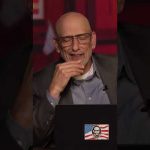In the latest buzz from Hollywood, actor Zachary Levi, famously known for his role as Shazam, is shaking things up with some strong opinions on the entertainment industry and its alleged liberal leanings. During a lively discussion on a conservative news channel, Levi addressed Whoopi Goldberg, who made sweeping claims about Hollywood being more diverse in its political affiliations than many believe. Levi didn’t mince words when he disagreed with her assessment, arguing that the reality is far more complex – and, frankly, uneasy for many conservatives in the industry.
Levi pointed out something quite interesting; while Goldberg skimmed the surface by naming a couple of conservative actors like Jon Voight and Dennis Quaid, he argued that the list of those willing to support Republican values publicly is significantly longer if one considers how many are too afraid to come out of the political closet. He suggested that the Hollywood elite often create a hostile environment for those who dare to voice conservative opinions. For many actors, staying silent about their political beliefs is a survival tactic in an industry known for having bold liberal ideals.
This revelation is hardly surprising when one considers the consequences of speaking out. Levi noted that many in Hollywood might prioritize their careers over their convictions because the pressures to conform can be overwhelming. Forget about saying “I’m a Trump supporter” on social media; that could earn you a one-way ticket to the unemployment line! It’s amusing yet eye-opening to realize that some personalities would rather fire their doctors than risk the backlash that comes from being aligned with “MAGA.” Such dedication clearly shows the tension between personal beliefs and career survival.
Moreover, it’s about more than just the actors. If a contestant on a popular reality show were to so much as like a tweet from a conservative figure, they could find themselves in a precarious situation! The scrutiny from fans and producers alike could mean serious ramifications. The irony is tangible; in a space often termed as a “melting pot,” the tolerance for political differences seems incredibly low. Levi’s remark about a potential show titled “Naked and Complaining” rather than “Naked and Afraid” was a humorous jab highlighting the absurd extremes that cancel culture can push individuals.
Finally, Levi’s experience isn’t an isolated scenario; it’s emblematic of a larger issue within Hollywood. It embodies a culture of elitism where money and acceptance from the liberal audience take precedence over personal values. Even when one might find a safe space to express their conservative views, like in Levi’s case, there remains a palpable sense of unease about navigating a career in a notoriously radical left environment. It’s a wild, complicated web where humor collides with serious truths about freedom of speech and the willingness to stand firm in one’s beliefs despite the severe repercussions that may follow. If nothing else, it sends a clear message: being a conservative in Hollywood is not for the faint of heart.




